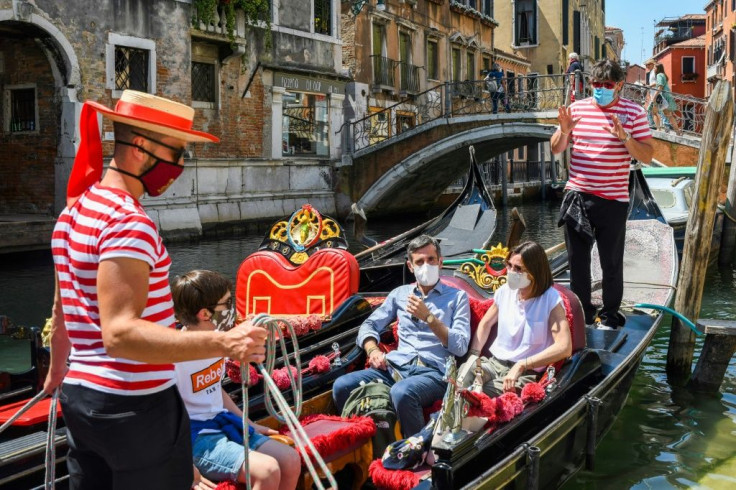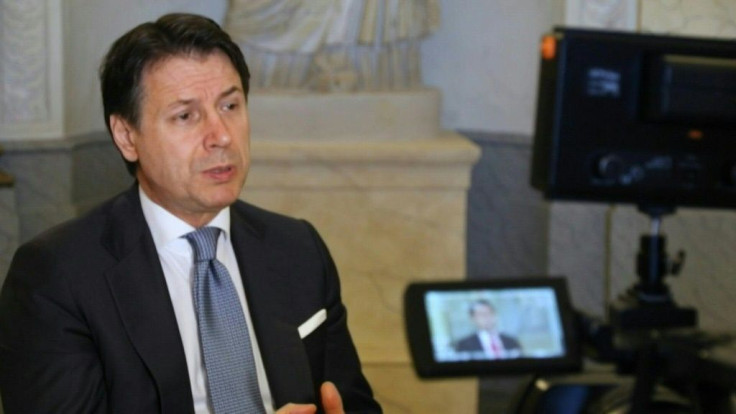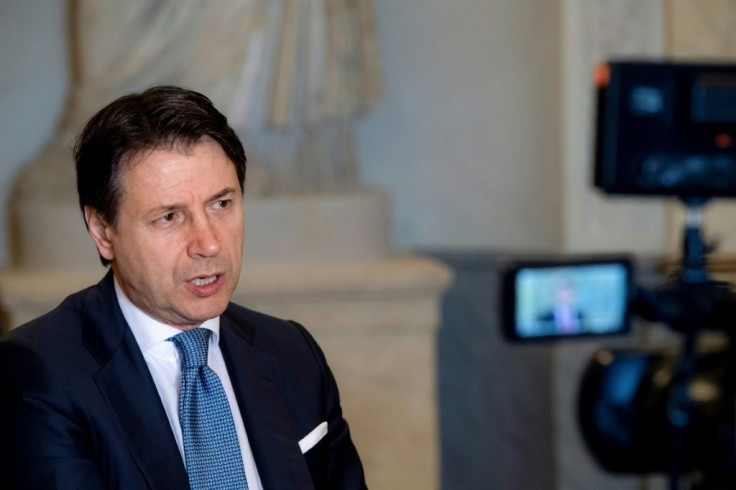Italy's Conte Says EU Virus Recovery Funds Will Be Spent Wisely

Italian Prime Minister Giuseppe Conte on Tuesday sought to reassure Europe that forthcoming coronavirus recovery funds would be spent wisely to revive the battered economy after a crippling lockdown.
In an exclusive interview to AFP, the leader of Europe's third-largest economy said Italy's share of the 750 billion euro ($845 billion) recovery plan agreed by the European Commission would be the impetus to fix longstanding problems at home.
Economists say entrenched structural problems have put the brakes on progress for decades. They include Italy's burdensome public bureaucracy, sub-par infrastructure, including slow adoption of digital technology, and widespread tax evasion.
"It's an opportunity for us to design a better Italy, to work on a serious, comprehensive investment plan that will make the country more modern, greener, and more socially inclusive," Conte said.
The first European country to be hit by the coronavirus pandemic, Italy is reeling from the economic effects of a lockdown imposed in March to stem the spread of the virus that has killed nearly 34,500 people.
"I often say it's not a handout to benefit the current government, it's an investment we must make in Italy and in Europe for our children and grandchildren," Conte said.
After months of wrangling among EU leaders and opposition from northern European countries, the European Commission in May agreed an unprecedented recovery plan, comprised of 500 billion euros in grants and 250 billion in loans.

Under the biggest EU stimulus package in history, Italy is expected to receive 172 billion euros, the largest share.
Italy and Spain had fought hard for a deal that would prioritise grants rather than loans, against the wishes of northern EU member states who insisted on a loans-only rescue package.
On Tuesday, Conte had words of praise for his European partners, saying he recognised that in Germany, "there was a great internal debate" over how Europe should respond to the economic crisis set in motion by the coronavirus.
"Compared to the very rigid initial stances, there has been an improvement," he said. "Germany has understood that it would not be appropriate for it either to have a Europe, a single market, that is so divided and fragmented."

Conte said he and France's President Emmanuel Macron had "shared this battle from the beginning," referring to early French support for Italy's call for budget solidarity within the EU.
"We were among the protagonists of those who immediately called for a strong, solid and immediate European response," Conte said.
As for post-Brexit negotiations with Britain, Conte said the month of July would be "crucial" but he was confident that a solution would be found "in the mutual interest of the parties."
"Especially during this pandemic, it's of no use to the EU or to the UK if an agreement is not reached with a historic partner like the UK."
Conte will head to Brussels in September, where he will present a detailed plan for how the EU funds will be spent.
Broad outlines of that plan are being debated at a general assembly organised by Conte that began in Rome on Saturday and is due to continue until June 21.
With Italy's economy expected to shrink at least by 8.3 percent this year, the country's main employers' organisation has sounded the alarm, calling for serious reforms and a plan to help businesses facing potential bankruptcy.
The prime minister has invited economists, academics, unions and business associations, as well as EU leaders, saying he wanted to unite "the country's strongest forces" to come up with ideas for Italy's economic rebound while removing structural and bureaucratic barriers.
"Italy has had a lower growth rate in recent years compared to other European countries. Today is an opportunity for us, with these resources, to catch up," Conte said.
© Copyright AFP {{Year}}. All rights reserved.





















